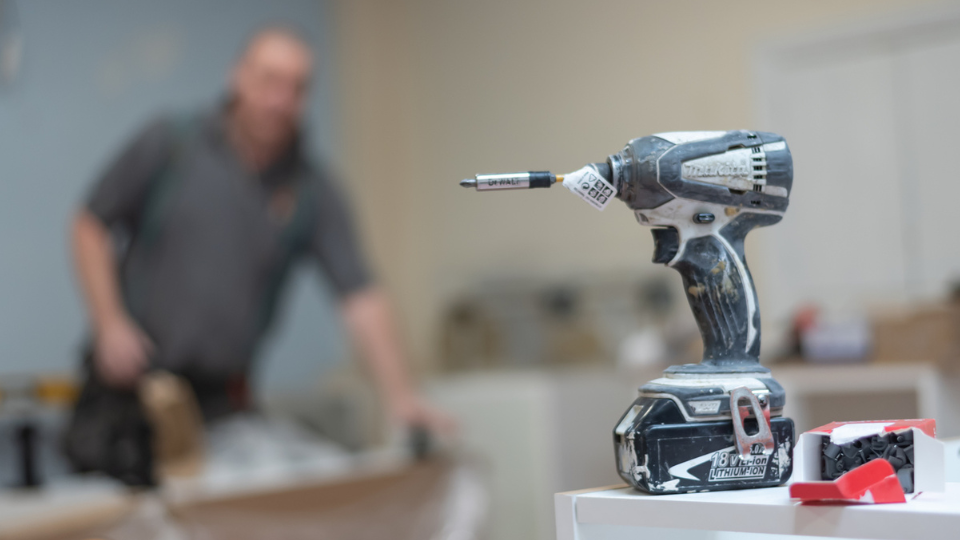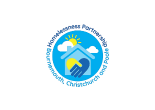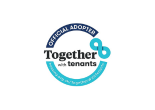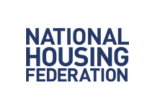Here you will find information on repairs and maintenance in your home:
Report a Repair
If we are responsible for carrying out a repair in your home, please inform us about the problem as soon as possible to avoid it getting any worse.
How to report a repair
You can report a repair by phone, online form or email. Please ensure you have all essential information ready.
Contact us
Call: 01202 410 500 (24-hour line operating seven days a week)
Email: [email protected]
Please note: emails and online forms are monitored from Monday – Friday, 9am – 5pm
When reporting the repair, include the following information:
- Your full name and address
- A clear description of the repair needed
- The best time for us to carry out the work
- Arrangements for gaining access to the property
- Any special circumstances, for example if you’re elderly or disabled
Emergency Repairs
If your repair is an emergency it is important that you phone 01202 410 500.
We aim to attend emergency repairs within 24 hours from the time they are reported.
- Explosions, such as boilers or heaters
- Flooding, such as a burst water pipe
- Total loss of electricity or water
- Broken lifts
- If you are registered disabled or have a child under 5 with a complete loss of heating or hot water
- Faulty main entrance door or windows that mean the property is insecure
- Do not touch electrical switches or appliances
- Open all doors and windows
- Do not smoke or light matches
- Extinguish all naked flames
- Turn off the gas at the gas meter
To report a smell of gas or a gas related emergency, please call the National Gas Emergency Service on 0800 111 999.

Maintaining Your Home
Below you can find a number of helpful resources and information on how you can maintain your home and what services we can provide you with.
You are responsible for repairs caused because of damage or neglect by you, your family, your visitors or your pets, including any accidental damage or any alterations that have been made.
Please be aware that you will be charged for the full cost of any repair work which we have to carry out as a result of damages caused by yourself.
If damage has been caused to your home by criminal action, you must report this to the police, so they can investigate the matter. The police will give you a crime number which you must tell us so as we can carry out the repairs needed.
BCHA is committed to providing accommodation that is suitable for you. We may be able to make adaptations to your home, to help you live there for longer.
If you’re living within a BCHA property and finding it difficult to manage your home due to long-term illness, a disability or because of your mobility, then let us know. We might be able to help make your everyday life easier by arranging adaptations to your home.
Examples of minor adaptations:
- Grab rails
- Extra bannister rails
- Vibrating pillow-pad linked to smoke alarms
- Lever taps
Examples of major adaptations:
- Wetroom
- Level access shower
- Over bath shower
- Ramp
You can make a request for an adaptation by:
- Contacting your Tenancy Officer
- Writing a letter to our Head Office – The Factory, 14 Alder Hills, Poole, BH12 4AS
- We will also accept a letter from your doctor detailing what adaptations you need
We aim to complete all minor adaptations within three months of the date of your initial request, if approved. However, we will try to complete the work earlier if possible.
If you require a major adaptation to your home, then please contact your Tenancy Officer or Support Worker. It may be that they will discuss with you the option of moving to somewhere more suited to your needs, or they might be able to support you to apply for some funding for this work. You can download our Aids & Adaptations Guidebook by clicking the thumbnail below.
Every year we carry out a range of improvements to your homes. We replace or improve many kitchens, bathrooms, boilers, windows and doors.
We don’t have a fixed timetable to replace or improve kitchens or bathrooms. Each kitchen or bathroom is in a different condition, and work always depends on how much each bathroom or kitchen has been used.
Each property will be considered on an individual basis, and we will attempt to carry out a repair before replacement. If your kitchen or bathroom needs fixing, please contact our Repairs Team. If we find that repairs aren’t enough, we’ll consider replacing the kitchen or bathroom, which may require another visit to your property from one of our surveyors.
If we own your home and you rent it from us, you will need our permission in writing before carrying out any repairs or improvements yourself. Please contact your Tenancy Officer if you wish to do any repairs or make any improvements.
If you own, or part own your home, you will have to pay either in part, or in full, for any repairs that we carry out. You may also need our permission before carrying out any repairs or home improvements yourself.
If you are unsure about your tenancy or responsibilities, please speak to your Tenancy Officer for advice.
These short videos will help you to carry out basic repairs in your home.
How to find your internal stop tap

Safety In Your Home
To help you stay safe in your home please find useful information on a number of topics below.
Your gas boilers and provided appliances must be serviced and gas pipework tests done once a year. This is a legal requirement, and it is important we undertake these checks to ensure the safety of you, your family and your neighbours.
We can assure you that all our contractors are Gas Safe Register approved. You should never undertake any work involving your boiler or heating system, or allow anyone without Gas Safe registration to do so on your behalf.
Carbon monoxide (CO) is known as the 'silent killer' as it is colourless and odourless. It can come from faulty appliances powered by any fuel that burns. These include gas, solid fuel and oil fuels. CO alarms detect the presence of this poisonous gas.
We will fit and service carbon monoxide detectors as part of our ongoing maintenance programme. Always take the following precautions:
- NEVER use a gas appliance if you think it is not working correctly. Look out for signs that include yellow or orange flames, soot or staining around the appliance and pilot lights that frequently blow out
- NEVER cover up a gas appliance
- NEVER block or obstruct any internal or externally fixed ventilation grille or airbrick
- NEVER block or cover any internal or externally fitted flue from a gas appliance
- NEVER allow an unqualified gas fitter or person to install or carry out works on your gas appliances, or attempt the work yourself (all qualified gas fitters are registered with Gas Safe and must present an up to date Gas Safe identification card)
Many people don't realise how quickly a fire can spread. That is why it’s so important that you take all the steps you can to protect your family and your home against the threat of fire.
If a fire breaks out in your home, call 999 immediately.
We will fit a smoke alarm in your home and carry out fire risk assessments for all communal areas. It is your responsibility to make sure that you test the smoke alarm regularly and keep all emergency exits clear.
There are many simple things you can do at home to reduce the risk of fire in your home.
- Smoke alarms :
All of our smoke alarms have a test button, so give it a press at least once a week to make sure the batteries are working. It might seem small but it could mean the difference between life and death.
If there’s a problem with your smoke alarm, please call us straight away on 01202 410 500.
- Kitchen safety:
Most fires start when people are in the kitchen, so please be extra careful when cooking. Always turn pan handles inwards and keep them away from children at all times. If your pan starts smoking, take it off the heat straight away and leave it to cool.
If you are using a chip pan, never have more than one third of oil in it and never leave a chip pan alone while it’s in use.
- Bedtime checks:
Try to get into the habit of closing all doors in your home before you go to bed. If a fire broke out, the closed doors would help stop it from spreading. You should also switch off electrical items at night, like TVs and computers, and double check that your oven and heaters aren’t on.
- Overloading sockets:
Putting too many plugs in a socket could cause them to spark and start a fire. Pull out any plugs you aren’t using and regularly check your wires for any signs of damage, such as cuts or frays.
- Candles:
We recommend not using candles in your home as it only takes a second for a candle to be accidentally knocked over. However, if you do use them, keep them in a candleholder, away from anything flammable and out of the reach of children or pets at all times.
- Smoking:
Fires caused by smoking result in more deaths than any other type of fire.
It is safer to smoke outside, but you should still ensure cigarettes are fully extinguished and disposed of properly.
If you do wish to smoke indoors – never smoke in bed, and don’t smoke in an armchair, or on a sofa, if you think you may fall asleep.
Use proper ashtrays and never balance your cigarette or cigar on the edge. Never leave a lit cigarette unattended.
We will test your electricity supply and wiring before you move into your home to make sure it is safe. You should ensure that your own electrical equipment is safe and in good working order.
Asbestos is a naturally occurring mineral that was commonly used in many forms as a building material in the UK until the late 1990s. A fibrous material, it was added to other products to strengthen them and provide fire-proofing and noise reduction. If your home was built before the year 2000, there is a possibility it may contain asbestos.
If that is the case, please be reassured that undisturbed, undamaged or sealed asbestos is safe. There is no danger to you unless the fibres are released and inhaled. We do not need to remove all asbestos from our properties, as it is often safer to manage the asbestos rather than disturb it. If you ever suspect asbestos materials in your home have been damaged or have deteriorated, do not touch it or try to clean it up and get in contact with us straight away.
If you are planning to do any DIY which involves drilling, cutting or sanding materials in any of the locations mentioned above, or if you are in any doubt, please contact us on 01202 410 500.
Legionella bacteria is commonly found in many water sources. Hot and cold water systems in homes can be a potential source.
Legionella bacteria can cause a form of pneumonia called Legionnaires’ disease, caused by the inhalation of small droplets of contaminated water. The bacteria does not spread in drinking water or person to person, and not everyone who comes into contact with the bacteria will become ill.
Symptoms of Legionnaires’ are similar to flu symptoms and include high temperature, fever and chills, cough, muscle pains and headache. If you are worried you might have Legionnaires’ disease, you should contact your GP as soon as possible. If your doctor diagnoses Legionnaires’ disease, please call us to let us know immediately so we can check and, if necessary, treat your water system.
To protect your home from Legionnaires' disease, follow these steps:
- Run your taps weekly and shower for 5 minutes
- Keep hot water temperatures set to over 50°C
- Report any failures with hot water systems or where cold water comes out warm for over a minute
- Ensure showerheads are kept clean and free from limescale
- Report any redundant pipework (e.g. supplies to washing machines not used)
- Flush all taps for 5 minutes before use without releasing a spray if property is left unoccupied for over 2 weeks
If you are concerned about Legionnaires' disease, please contact us or visit the HSE website for more information.
We have put together some tips to help keep your home and possessions secure:
- Always lock all your doors and windows when you leave your home
- Never leave keys under mats or hanging on a string behind the letterbox. Do not leave keys in view
- Always check the identity of callers before you let them in. All our staff and contractors carry photographic identification, but if you are unsure, contact us and we will be happy to confirm if they are a staff member or contractor acting on our behalf
- If you are away for a few days or more, cancel milk and newspaper deliveries
- If you live in a block of flats with a door entry phone, never prop open the main door
You may also find there is a local Neighbourhood Watch scheme in your area. You can search for local schemes, or find out how to start one, via the Neighbourhood Watch Network.

Damp & Mould
Damp, mould and condensation can all make your home less pleasant and unsightly to live in.
If you think you have a damp problem, please read our Looking After My Home: Preventing Mould leaflet and contact us so we can book a damp inspection.
Condensation is the most common form of dampness in our homes and if it is not managed and treated correctly, it can lead to the growth of black mould. Condensation occurs when the humidity in our home becomes too high and the moisture transfers onto colder surfaces.
Most moisture in your home is created by everyday activities. This infographic shows how much moisture comes from different activities.

Black mould can cause health problems, particularly if you have asthma or other health issues. That’s why it’s important to prevent condensation and treat mould as soon as you become aware of it in your home.
However, damp isn’t always caused by condensation. If you have tried preventing and treating black mould but it is not going away, there may be underlying issues which our Repairs Team can help with. Please call 01202 410 500 at your earliest convenience and send an image of the issue to [email protected]
Here are some top tips to preventing mould:
.png)
Opening windows in your home will help to remove moist air. It's important to stick to these guidelines on how to long to open windows for each hour during different times of the year
.png)
Wipe away the mould using a mould cleaner and cloth.

If you have tried preventing and treating mould but it is not going away, there may be a larger underlying issue causing black mould. The Repairs Team are here to help. Please contact us at your earliest conveniece if you need help on 01202 410500 and send an image of the issue to [email protected] if possible.
We recommend purchasing a Hygrometer, which are inexpensive and similar to a thermostat. They can give you a real time reading on the moisture levels and temperature within your home to better understand the possible causes of damp and mould.
Cost of living support
We are aware some of this advice to prevent black mould might concern you during the cost of living crisis.
Here are some top tips and resources to help you save money whilst preventing black mould:
Cooking and bathing
- Shorter showers and taking showers instead of baths, will help to reduce the amount of moisture and cut energy bills
Heating
- It is cheaper to set heating for longer periods at lower temperatures, rather than high for shorter periods
- If a room is sunny, save money by adjusting thermostatic radioator valves (TRV) to level 2-3. If a room is shady, set valves to 4-6
Ventilation
- Extractor fans are designed to run at a lower wattage, so they aren't as expensive to run as you may think
- Moisture rises, so a dehumidifier works most efficiently when located on the first floor of a two storey home
Plants
- Some house plants can naturally reduce the humidity in your home. Specifically, English Ivy, Peace Lily and Snake Plants
If you'd like support through the cost of living crisis, our Income Team are here to help. Please contact Jeanette Morgan on 01202 410 500 to see how we can help.
Here are some helpful resources for further support:
- Citizens Advice
- Money Saving Expert - Cost of Living Help Guide
- Turn2us - Grant and benefit search tool, alongside section on energy and water bills
- SouthWest Water- They offer several options of support for their customers
- The British Gas Energy Trust - This is open to everyone
- Step Change Charity - Budgeting advice and free online debt advice
Repairs Process Improvements
Following direct engagement with our customers, BCHA has reviewed and made key improvements to the repairs process in response to valuable feedback.
Customers raised concerns about long wait times for repairs referred to subcontractors. In response, BCHA will now regularly review subcontractor response times to ensure they align with our agreed Service Level Agreements (SLAs). Where timings fall short, we will work to improve performance and accountability.
We also identified a need for clearer communication around tenants’ responsibilities and key repair processes. These updates will be incorporated into the new General Needs Tenant Handbook, launching in 2025. Additional information, including guidance on managing and reporting damp and mould, is now available on the BCHA website under the Repairs and Maintenance section.
These changes are part of BCHA’s ongoing commitment to improving our service, enhancing clarity, and ensuring a more efficient and responsive repairs process for all our tenants.
Take a look at our most recent actions in our repairs leaflet, which you can view by clicking the image below.
Privacy Policy
The privacy and security of your personal information is important to us. Any contact with us generates records, which may include personal information which is subject to data protection legislation. BCHA follows UK legislation in how it stores and uses any data collected from individuals. Click the button below to learn more.












